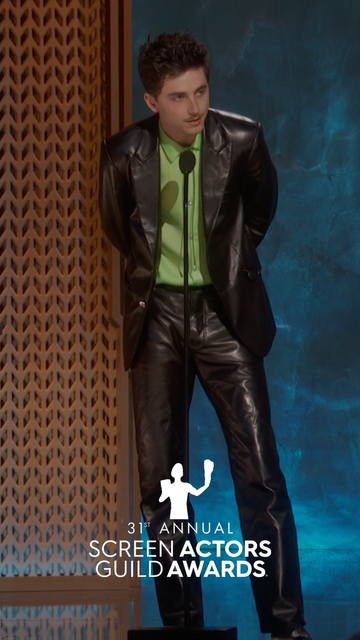Could Timothée Chalamet be the modern-day Romeo we've been waiting for? The acclaimed actor, known for his versatility and depth, has captured audiences worldwide with performances that resonate on both emotional and intellectual levels. His breakout role in Call Me By Your Name showcased a sensitivity and authenticity rarely seen in contemporary cinema. As discussions around potential casting of Chalamet as Romeo continue to gain traction, it’s worth exploring whether this talented actor could breathe new life into one of literature's most iconic love stories.
The idea of casting Timothée Chalamet as Romeo isn’t entirely unprecedented. Fans have long speculated about his suitability for the role due to his youthful charm and ability to convey complex emotions. In 2017, his portrayal of Elio Perlman in Call Me By Your Name demonstrated not only his range but also his capacity to handle themes central to Shakespearean tragedy—passion, longing, and heartbreak. While some might argue that Chalamet's star power risks overshadowing the text, others believe his presence would draw younger audiences to appreciate the timeless beauty of Romeo and Juliet. Moreover, his involvement in diverse projects like Dune and The French Dispatch underscores his commitment to challenging narratives, making him an ideal candidate for reinterpreting classical works.
| Bio Data & Personal Information | Career Highlights | Professional Achievements |
|---|---|---|
| Name: Timothée Hal Chalamet | Breakout Role: Call Me By Your Name (2017) | Awards: Nominated for multiple Academy Awards, Golden Globes, and BAFTAs |
| Date of Birth: December 27, 1995 | Notable Films: Dune, Little Women, Beautiful Boy | Collaborations: Worked with directors such as Luca Guadagnino, Denis Villeneuve, and Greta Gerwig |
| Place of Birth: New York City, USA | Upcoming Projects: Oppenheimer, Wonka | Reference Link: IMDb Profile |
In addition to his filmography, Chalamet’s stage experience adds another layer to his potential interpretation of Romeo. Although primarily recognized for his cinematic achievements, he began his career in theater, performing in productions at Lincoln Center and Broadway. This background equips him with the tools necessary to navigate the nuances of Shakespearean dialogue while maintaining the raw emotion required for a convincing performance. Furthermore, his willingness to experiment with different genres—from period dramas to science fiction—suggests that he wouldn't shy away from taking creative risks when tackling a classic play.
Despite these strengths, there are valid concerns regarding how well Chalamet's persona aligns with traditional perceptions of Romeo. For instance, his slender frame and ethereal appearance may evoke comparisons to Mercutio rather than the titular lover. However, such interpretations can enrich the narrative by offering fresh perspectives on character dynamics. After all, Shakespeare's plays were meant to evolve with each generation, allowing actors to reinterpret roles according to their unique sensibilities.
Meanwhile, rumors persist about Francesca Amewudah-Rivers joining Tom Holland in a West End production of Romeo and Juliet, further fueling speculation about alternative casts. Yet, the prospect of seeing Chalamet opposite Sydney Sweeney in a similar venture remains tantalizing. Their combined star power could attract global attention, bridging gaps between classical theater enthusiasts and mainstream audiences alike. Such collaborations highlight the importance of embracing diversity within artistic endeavors, ensuring that stories remain relevant across cultures and eras.
It is essential to acknowledge that any adaptation must respect the integrity of Shakespeare's original work. While updating settings or casting choices can enhance accessibility, they should never compromise the essence of the story. Therefore, if Chalamet does take on the role of Romeo, his approach will likely involve meticulous study of the text alongside innovative staging techniques designed to engage modern viewers without diluting its poetic richness.
Ultimately, the question remains: Can Timothée Chalamet transform our understanding of Romeo and Juliet? Given his track record of delivering compelling performances rooted in authenticity, the answer seems promising. Whether through his nuanced reading of lines or his ability to connect emotionally with audiences, Chalamet possesses qualities that make him a formidable contender for this legendary part. As conversations around his possible casting continue, one thing becomes clear—he represents a bridge between tradition and innovation, embodying the spirit of reinvention so crucial to keeping Shakespeare alive in today's world.
| Related Information | Details |
|---|---|
| Production Details: | Several adaptations of Romeo and Juliet exist, including musical versions and updated settings. |
| Fan Casting: | Audiences often propose unconventional pairings based on actor chemistry and personal preferences. |
| Shakespeare Revivals: | Modern stagings frequently incorporate multimedia elements to appeal to broader demographics. |
| Reference Material: | Folger Shakespeare Library |
From fan art imagining Chalamet as Juliet to debates over who best embodies Mercutio, the fascination surrounding this play continues to inspire creativity beyond the confines of traditional performance. As technology evolves, so too do opportunities for artists to reimagine timeless tales using cutting-edge methods. Thus, regardless of whether Chalamet ultimately steps into the shoes of Romeo, his influence extends far beyond mere conjecture—it ignites dialogue about how we preserve and celebrate cultural heritage in an ever-changing landscape.



